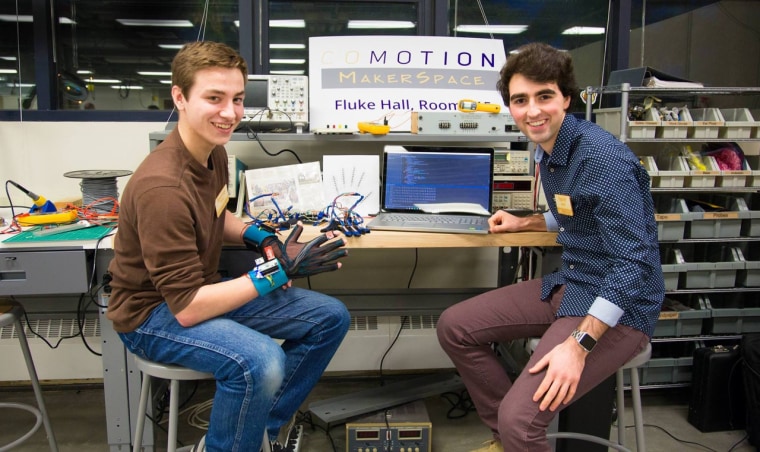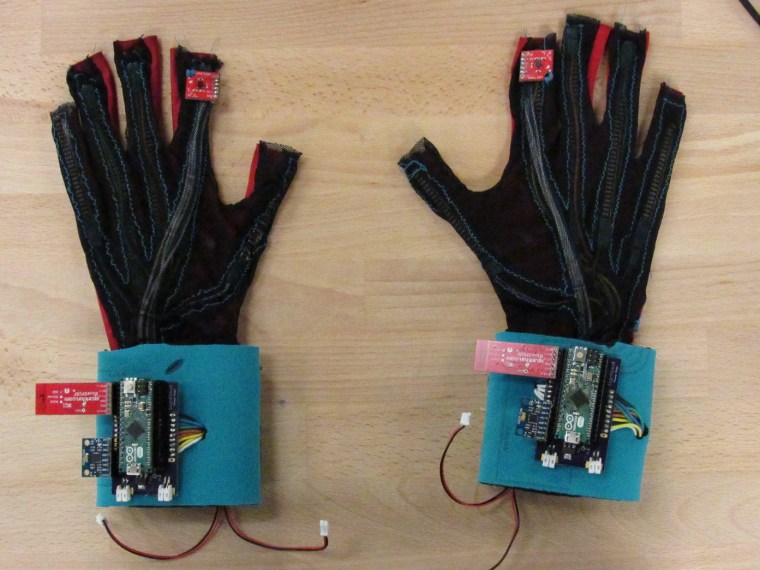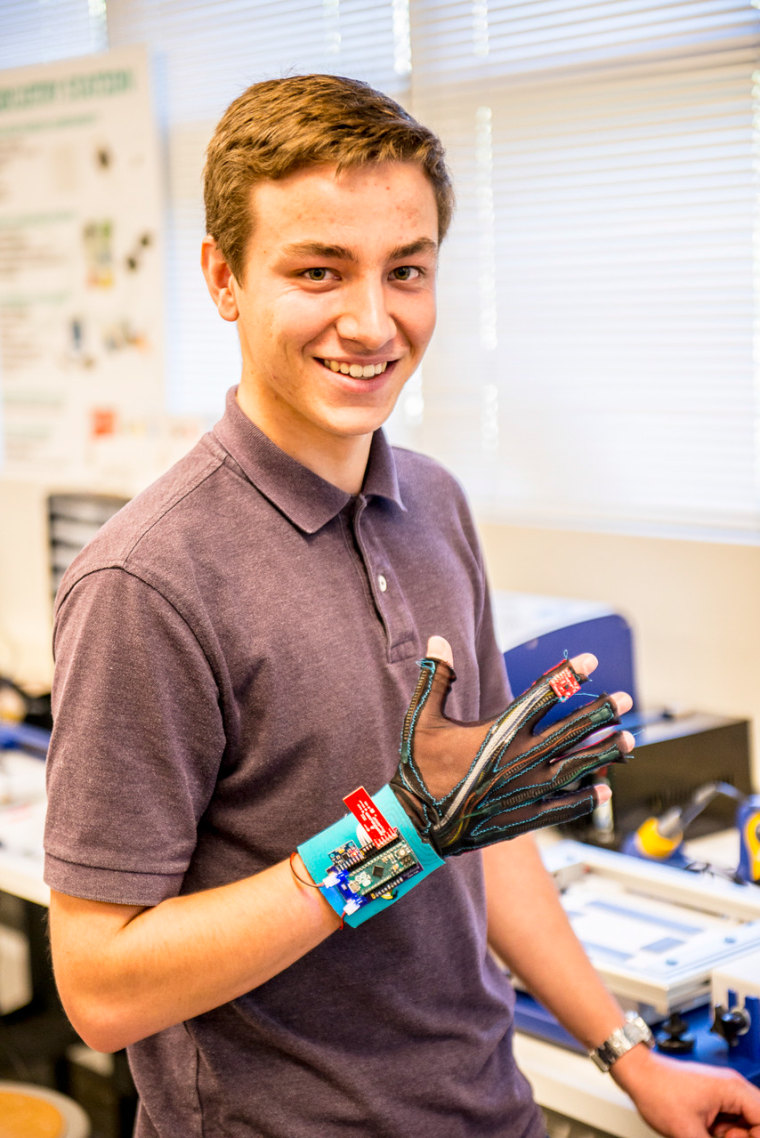Two 20-year-olds whose friendship started in a college technology lab are getting national recognition for an invention that could revolutionize communication.
Last month, University of Washington sophomores Navid Azodi and Thomas Pryor won the 2016 Lemelson-MIT student prize for creating “SignAloud” — gloves that recognize the hand gestures of American Sign Language and translate it into text and speech.
The gloves are worn on both hands and contain sensors that record movement and send data wirelessly via Bluetooth to a central computer, which interprets words and phrases through a speaker.
The team was one of seven winners in the “Use It” undergraduate category that recognizes technology-based inventions to improve consumer devices. They were awarded $10,000.
Special section: Get tips and advice about college at College Game Plan
For Azodi, a business administration and aeronautics major from Kent, Washington, the idea sprang from personal experience: At 18 months old, a severe seizure took away his speech.
“I didn’t speak until I was seven years old,” he told NBC News. “I used non-verbal communication and basic sign language. For years, I had to go to speech therapy.”

Doctors said Azodi would be handicapped and suggested he focus on English and sign language.
Though he was born in the United States, Azodi's parents were from Iran and spoke Farsi.
“I understood what it was like to have a communication barrier and I could see how technology could be a useful tool,” he said.
The two inventors met freshmen year in University of Washington’s CoMotion MakerSpace, a technology lab where students can “tinker, create and innovate.”
Related: Custodian, 54, Graduates From Engineering School After 8 Years of Cleaning University
Azodi shared his story and the two “bonded in problem solving,” according to Pryor, who studies astronautics engineering.
Their prototype gloves, which cost about $100, are lightweight and compact, unlike other devices on the market.
“They are a lot more ergonomic,” Pryor told NBC News. “Some devices use video input for gesture and others have impractical sensors all over the body. We wanted to focus on something that consumers would buy.”

It was Pryor’s mother, a professor at the University of Arizona, who heard about the competition and urged the students to apply.
“We were not really expecting something of this magnitude,” Pryor told NBC News. “It was a personal project between the two of us and something fun to do. It goes to show what opportunities are around the corner.”
The students reached out to the deaf community to guide them in grammar and syntax and how the gloves might be used. Pryor said getting feedback had been a “humbling experience.”
“There is much more for us to learn about the deaf culture and American Sign Language,” he said.
Related: Not 'Just Another Teen Mom': Foster Child Graduates College, Debt-Free
Azodi said they had received some criticism from the deaf about those who can hear “imposing” on those who do not.
“We never intended that,” he said. “We have to do it right to make this 100 percent integrated into the life of someone who is deaf.”
But the gloves have just as much potential for those who hear and want to learn ASL. They also have medical potential to help stroke victims during rehabilitation.
Since the prize was announced, the students have received inquiries from investors and manufacturers, some offering technical support.
Related: What Makes a Good Commencement Speech? Lessons From the Best Ones Ever
But they caution that the gloves are just an early prototype and work still needs to be done before they are ready to market.
In the meantime, Azodi and Pryor are using some of their prize money to help offset their college tuition, so they can continue to develop the gloves.
“We want to take it further, to push it ahead,” Azodi said. “It has such great potential.”
